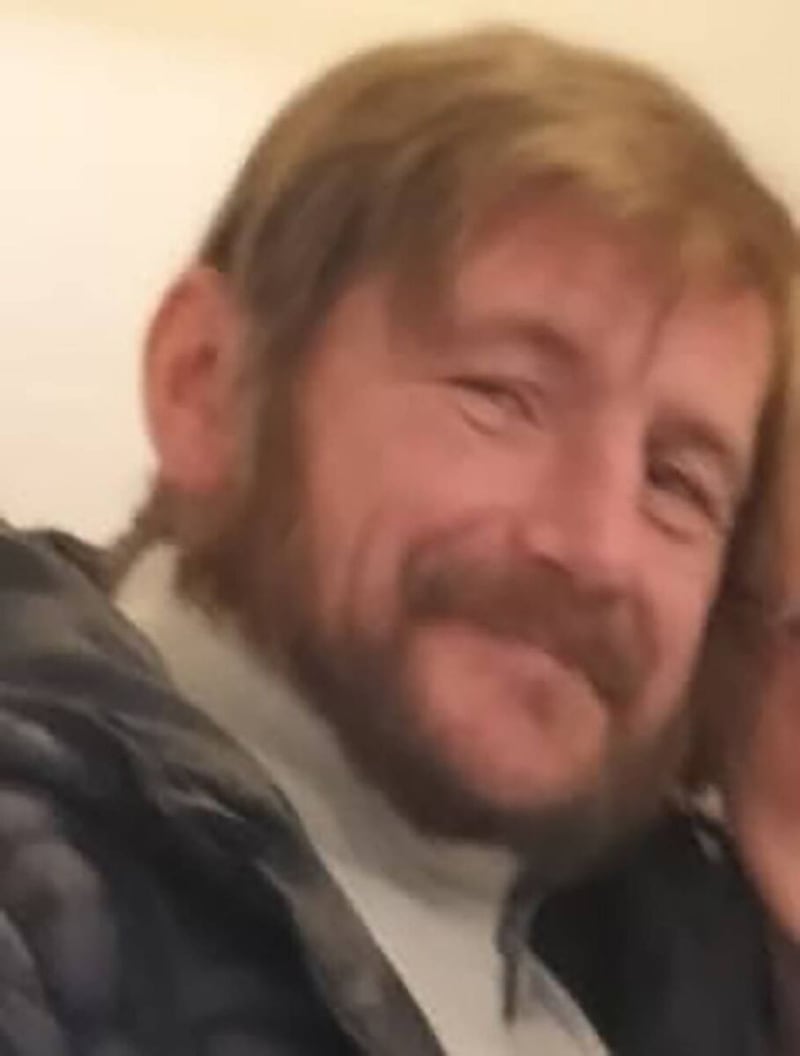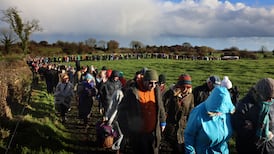A couple of weeks ago, I was walking into a supermarket in the centre of Dublin when a homeless man approached me to ask if I could help him out with some money for a hostel.
The encounter followed the more-or-less rigid format of such encounters, or non-encounters: the request apologetically advanced, the reply timorously made, a half-muttered and slightly shamed expression of regret: no cash, sorry, I’ll get you next time.
A person becomes numbed, by the sheer repetitive ubiquity of these exchanges, to how strange and sad it is to move about a city only half-conscious of the lost and suffering souls on every other corner, hunched in doorways and alleys against the cold, the rain, other miscellaneous misfortunes. All this is normal, part of the texture and flow of urban life.
As I walked through the doors of the supermarket, I realised my automatic response had not in fact been truthful, that I did actually have cash on me, money I’d taken out for a uniform sale at my children’s school.
READ MORE
And so out of an almost arbitrary jolt of conscience I went back and handed the man a note. His reaction took me by surprise: he seemed shocked, almost bewildered, by this act of really quite minimal charity.
Then he started to tell me about his life on the streets, to itemise the sufferings and indignities, the roughings-up and the movings-on, the bare purgatorial existence to which he’d been condemned for reasons too complicated, or simply too painful, to enumerate.
I remember in particular one phrase he kept repeating: “I’m not a scumbag.” This phrase he must have used three or four times, and with each successive repetition I understood it more clearly as a plea in defence of his humanity, a status he must have felt had been denied him as a homeless person.
He meant, I imagine, that he didn’t deserve his fate. I have no doubt that this was true on the grounds that I can imagine no person deserving of such a fate.
[ ‘Here’s me,’ Trump is saying, ‘a literal king, shitting on your democratic protest’ ]
Later, when I thought about the encounter, I suspected that my coming back to give him some cash after that initial refusal – not an especially large amount, to be clear, and certainly less than I could have afforded to give him without causing myself any discomfort, but larger, I suppose, than he was used to receiving – was something he took as a recognition, however minimal and cursory, of his existence as a person.
This is something people who are homeless often mention when they speak about the difficulties of their lives: the reality of not even being seen. And like almost everyone who lives in a city like Dublin, I do a lot of not seeing, a lot of not hearing.
There’s an ingenious fantasy novel called The City & The City by the English writer China Miéville that I think about quite frequently when I consider this aspect of living in Dublin.
It’s a kind of speculative detective story, set in the fictional eastern European city-states of Ul Quoma and Besźel, both of which independent polities occupy the same physical location, but in which the inhabitants of each city literally do not see those of the other.
Citizens of each city move through a shared space, unconsciously recognising but consciously ignoring the existence of the other place, its architecturally distinct buildings and its people, who wear different clothing and speak a different language. This is done through a legally enforced process of psychic editing known as “unseeing”.
The book can be read as a rich and complex allegory of real cities structured around deep political fissures – Jerusalem, for instance, even Belfast – but is also a profound imaginative engagement with how all of us adhere to various policies of “unseeing”.
And the most obvious, and troubling, example of this is surely the capacity to “unsee” the homeless. There is a city that exists within and alongside the one that Dubliners inhabit, a place whose citizens and structures – tents, sleeping bags, flattened beds of cardboard – we walk past, perceiving but not fully seeing.

All this is on my mind because of a report published earlier this week about an inquest into the death last year of a 41-year-old homeless man. The man was known as Piotr Torng, and was believed to be from Lithuania, but his actual identity remains unconfirmed.
After he died, apparently as a result of cardiac arrest, in St James’s Hospital, Dublin, in November last year, his body was held in the city morgue for six months, awaiting some relative or next of kin to come forward and claim him.
When no one came forward, volunteers from the Alice Leahy Trust, a charity that provides medical and related services for the homeless, made arrangements for his body to be buried in a plot in Glasnevin cemetery. The plot was set aside by the trust for the bodies of homeless people without families to arrange their burial.
A few people who knew him – a priest from a church in the Liberties where he sometimes attended Mass, volunteers who had encountered him through their work with the homeless – said a few words in his memory at the graveside.
“The fragments of a life had been assembled in order to say goodbye,” as the journalist Mick Clifford, who attended the burial, put it in an article in the Irish Examiner last April.
The people who had assembled those fragments might not have known him well, might not even have known his real name or place of provenance, but in the absence of a family, in the absence of a less unthinkable world, they at least saw him.
[ The Enhanced Games are about something far weirder than money ]
And, here, I am aware of the faint pressure of my role as an opinion columnist to offer some form of explanation, to parse the human failings and ideological cruelties that led Piotr Torng to his lonely death and that led the other man, whose name I have forgotten or perhaps never even thought to ask, to assure me with such sad insistence that he was, as he put it, not a scumbag.
But I don’t know how much my opinions on these questions of causation would really be worth.
According to that news report, Piotr Torng largely spent his days in the south inner city. It strikes me that I almost certainly encountered him in the years he was on the streets and that he may well have asked me for help, for money and, less explicitly, for an acknowledgment of his existence as an inhabitant of that other city, the one that occupies the same space as my own.
Whether I might have seen or unseen him, I can’t say.











